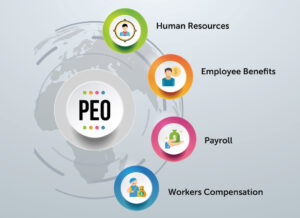As California leads the nation in solar energy adoption, the demand for skilled solar workers continues to rise. With this development comes the require for comprehensive workers’ compensation scope custom fitted to the special dangers confronted by solar industry experts. Coastal Work Comp specializes in giving Solar Workers Comp in California, guaranteeing that your solar vitality commerce and its important workforce are secured.
Understanding Solar Workers Comp in California
Solar Workers Comp in California could be a pivotal viewpoint of running a fruitful and dependable solar energy commerce. This specialized frame of workers’ compensation insurance is planned to cover the particular dangers and challenges confronted by solar installers, technicians, and other experts within the renewable energy segment.
The solar industry presents special dangers that conventional workers’ comp approaches may not satisfactorily address. From working at heights on housetops to taking care of complex electrical frameworks, solar workers confront particular occupational dangers. That’s why it’s fundamental to accomplice with a supplier like Coastal Work Comp that gets it the complexities of Solar Workers Comp in California.
Key Benefits of Our Solar Workers Comp Scope
1. Custom-made Assurance: Our Solar Workers Comp arrangements are particularly outlined to address the special dangers confronted by solar energy experts in California.
2. Compliance Affirmation: We guarantee that your commerce meets all state directions with respect to workers’ compensation, making a difference you maintain a strategic distance from potential fines and lawful issues.
3. Monetary Security: Within the occasion of a working environment harm or ailment, our scope gives monetary assurance for both your trade and your representatives.
4. Risk Administration Bolster: We offer resources and direction to assist minimize work environment risks and decrease the probability of claims.
5. Incite Claims Handling: Our proficient claims administration framework ensures that your representatives get convenient restorative care and benefits when required.
Why Choose Coastal Work Comp Company for Solar Workers Comp
Expertise in the Solar Industry: Our team has extensive experience in providing Solar Workers Comp in California. We understand the unique challenges and risks associated with solar energy work, allowing us to offer the most comprehensive and relevant coverage.
Customized Approaches: We recognize that no two solar businesses are alike. Our Solar Workers Comp approaches can be custom-made to meet the particular needs of your operation, whether you are a little private installer or a huge commercial solar cultivate.
Competitive Rates: We endeavor to offer competitive premiums for Solar Workers Comp in California without compromising on scope quality. Our objective is to supply reasonable assurance that fits your budget.
Proactive Chance Administration: We work closely with our clients to actualize viable security programs and best hones, making a difference to diminish work environment mishaps and lower premiums over time.
Remarkable Client Benefit: Our devoted team is continuously prepared to help you with any questions or concerns with respect to your Solar Workers Comp scope. We pride ourselves on responsive and personalized benefit.
Remaining Ahead in a Developing Industry
As the solar energy segment proceeds to grow in California, it’s significant to accomplice with a workers’ comp supplier that remains ahead of industry patterns and advancing dangers. Coastal Work Comp is committed to ceaseless change and adjustment of our Solar Workers Comp offerings to guarantee that your scope remains pertinent and comprehensive.
From advancements in solar panel innovation to changes in establishment techniques, we remain educated almost the most recent improvements within the solar industry. This information permits us to overhaul our Solar Workers Comp approaches appropriately, guaranteeing that your trade and workers are continuously ensured against current and rising dangers.
Take the Next Step in Protecting Your Solar Workforce
Do not take off your solar energy business powerless to the monetary and legitimate dangers related with work environment wounds. Contact Coastal Work Comp today to memorize more around our Solar Workers Comp in California and how able to tailor a policy to meet your particular needs.
Our master group is prepared to supply a comprehensive assessment of your solar operation and plan a Solar Workers Comp arrangement that gives peace of intellect for you and your representatives. Secure your business, defend your workforce, and center on driving the solar energy transformation in California with certainty.
Select Coastal Work Comp for your Solar Workers Comp needs and encounter the distinction that specialized scope and industry skill can make for your solar energy commerce.












